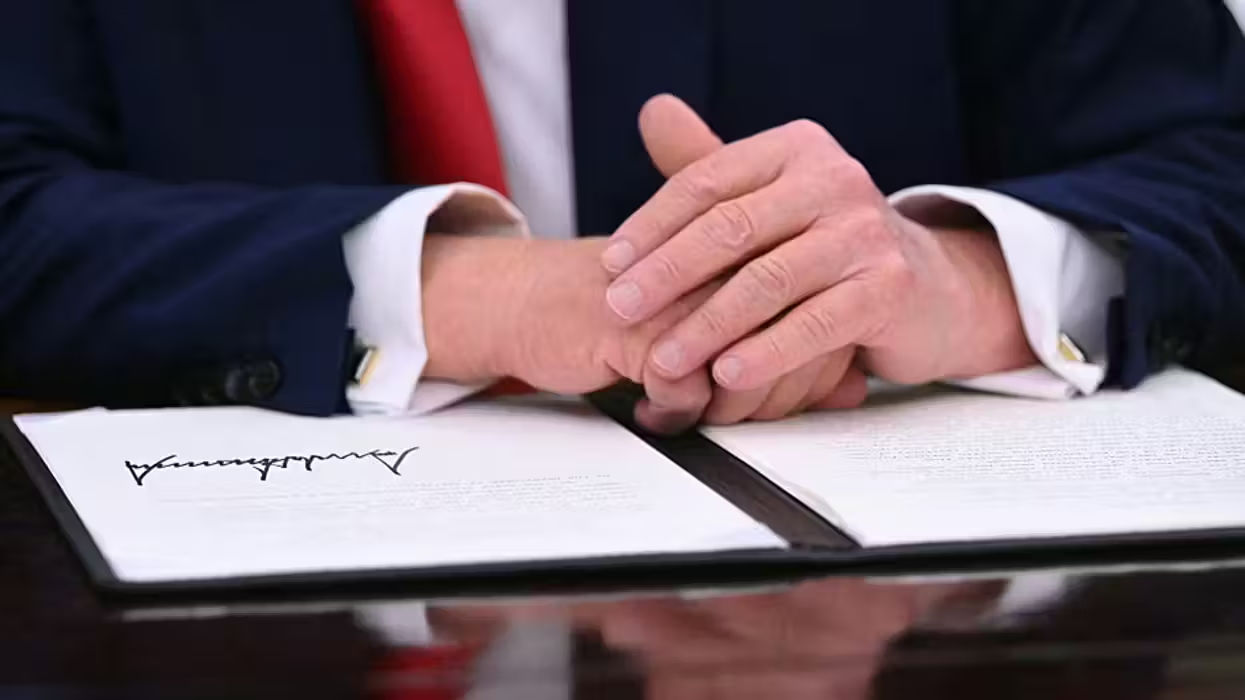
© 2025 Blaze Media LLC. All rights reserved.
Warnings: If History Repeats Itself, the Price of Oil Could Reach $440 a Barrel
March 05, 2012
"Iran has a lot of leverage here."
 Bob Bandos, president and CEO of GAC North America, a marine logistics and service company headquartered in Dubai, fears that the tension between Iran and the West will lead to an exponential increase in the price of oil.
Bob Bandos, president and CEO of GAC North America, a marine logistics and service company headquartered in Dubai, fears that the tension between Iran and the West will lead to an exponential increase in the price of oil.
Many Blaze readers are aware of the details: several Western countries have threatened to sanction Iran if it refuses to abandon its nuclear energy program. In return, Iran has threatened to close the Strait of Hormuz – an artery vital to international oil trade.
“The oil is not just from Iran but also from oil-rich producers Saudi Arabia, Kuwait, Qatar and the United Arab Emirates that feed energy-hungry consumers,” writes Pierre Bertrand of International Business Times. “Daily, 14 supertankers sail through the strait. The largest can carry more than 320,000 tons of cargo.”
It’s not because Iran is threatening to deprive some eurozone countries of oil that several U.S. economists are worried. It’s because closing the strait would effectively cut off 40 percent of all U.S. crude imports. Obviously, this would be extraordinary dangerous for the already-fragile U.S. economy.
How dangerous?
Bandos believes that if the Strait were choked off, the effect would be similar to the fuel shortages of the 1970s – but much worse.
"That would be nothing compared to this," Bandos said, who added that the shortage would be felt on a global level.
“During the 1973 Yom Kippur War between Israel, Egypt and Syria, Arab oil exporters declared an embargo from October 1973 that lasted until April 1974,” Bertrand explains, “World oil prices shot up from $3.40 a barrel to $12. Overall, the world shut off 7 percent of daily production…by contrast, oil has been selling for about $109 a barrel.”
Now keep in mind the Iranians have threatened to close the strait for at least a month, claiming it will sink anything traveling through the area with its missile defense system.
 Mahmoud Ahmadinejad approving of Iran's first nuclear-powered whiskey still
Mahmoud Ahmadinejad approving of Iran's first nuclear-powered whiskey still
"If that were the case, you're talking about millions and millions of barrels of oil that will not get out," Bandos said. "It's going to create more havoc on oil."
Many analysts believe that a closure would mean devastation for the global economy because oil shortages will hit countries “where they are most vulnerable.”
Considering how the markets have reacted recently to even the slightest provocation, Bandos' warnings doesn't sound that far-fetched.
“To prove a point, Iran in January held war games in the strait,” Bertrand notes, “The mere rumor of a temporary closure sent crude oil prices soaring to more than $112 a barrel. Crude oil prices have since dropped, but fed by fears of war,” oil prices are creeping back up.
"Iran has a lot of leverage here," said GAC's Bandos, adding a closure would most likely provoke U.S. intervention.
A closure would also violate international law, he adds, and the effects would be felt everywhere – not just in the markets.
“Companies that charter shippers to haul their goods will be in a particular bind,” Bertrand writes, “Companies usually spend anywhere between $30,000 and $120,000 a day to charter a tanker ship, and that does not include bunkering and fuel costs.”
Furthermore, a closure could bring about a firestorm of litigation as literally tons of materiel and cargo could “sit in limbo in port, or idle in the water,” which, of course, would lead to lawsuits over who gets what, when, and how.
“One thing is clear: If the strait closes, global economies would suffer,” Bertrand declares, “Oil prices are sure to hit record highs. If the 1973 embargo experience repeats itself, the price of a barrel of oil could soar to $440 a barrel.”
(H/T: Business Insider)
Want to leave a tip?
We answer to you. Help keep our content free of advertisers and big tech censorship by leaving a tip today.
Want to join the conversation?
Already a subscriber?
more stories
Sign up for the Blaze newsletter
By signing up, you agree to our Privacy Policy and Terms of Use, and agree to receive content that may sometimes include advertisements. You may opt out at any time.
Related Content
© 2025 Blaze Media LLC. All rights reserved.
Get the stories that matter most delivered directly to your inbox.
By signing up, you agree to our Privacy Policy and Terms of Use, and agree to receive content that may sometimes include advertisements. You may opt out at any time.






